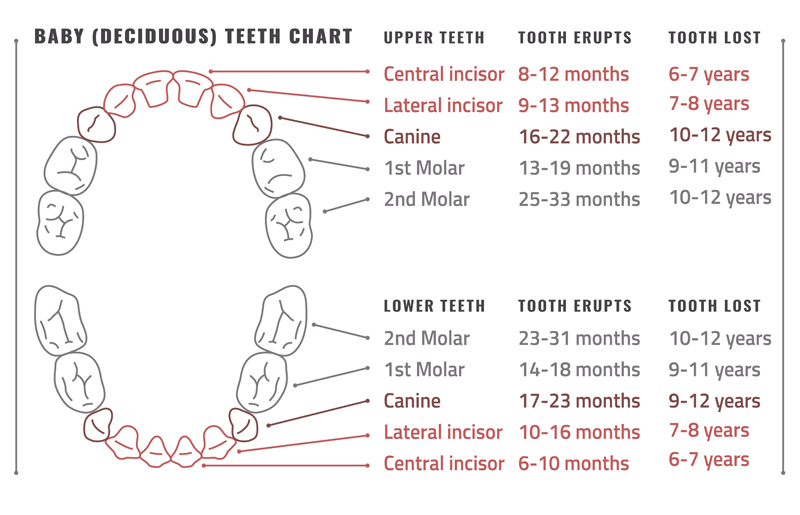Losing Baby Teeth
Losing baby teeth is an inevitability every child — and every parent — must face at some point. For some kids, this is an exciting event and they can’t wait to write a letter to the tooth fairy and ship that tooth off to a magic castle in the sky. For other children, losing baby teeth can be scary, uncomfortable and unwelcome. At Hardy Pediatric Dentistry & Orthodontics, we want your child to embrace the changes that will happen to them as they grow and develop and to not have fear. By educating yourself and your child about what to do and what to expect when losing baby teeth you can help the experience be a positive, exciting one.
When Do Teeth Erupt and Fall Out?
 Pinpointing when teeth will come in and when they will fall out can be a difficult thing — it isn’t an exact science and eruption times vary from child to child. However, there are some averages that you can consult to help you. According to the American Dental Association, teeth typically fall out in the order in which they appeared with the two bottom front teeth falling out first. Most kids will lose their first tooth by the age of 6 or 7, and will lose the last tooth, which is the second molar, by the age of 12 or 13.
Pinpointing when teeth will come in and when they will fall out can be a difficult thing — it isn’t an exact science and eruption times vary from child to child. However, there are some averages that you can consult to help you. According to the American Dental Association, teeth typically fall out in the order in which they appeared with the two bottom front teeth falling out first. Most kids will lose their first tooth by the age of 6 or 7, and will lose the last tooth, which is the second molar, by the age of 12 or 13.
What to Do When a Tooth is Loose
Sometimes it can take a few days — or even a few months — for a tooth to finally fall out after your child notices it is loose. How quickly it falls out varies and is influenced by how much the child wiggles it and how quickly the tooth root dissolves.
It can take several months to completely grow in; but if the tooth has not grown in after six months, see your dentist since he or she may refer you to an oral surgeon for an evaluation.
What to Do After a Tooth Falls Out
The first thing you should do when your child’s tooth falls out is make sure the child is calm, comfortable and aware of the exciting thing that just happened to them. Blood can be frightening to a child, so make sure and reassure him that this is normal and have him swish some warm water around in his mouth to help with the bleeding. Brushing the area where the tooth fell out should still occur, but should be done gently. After a baby tooth has fallen out, it is especially important to teach your child the importance of brushing twice a day, flossing and making good eating choices to preserve the health of growing permanent teeth — you only get one set of those!
